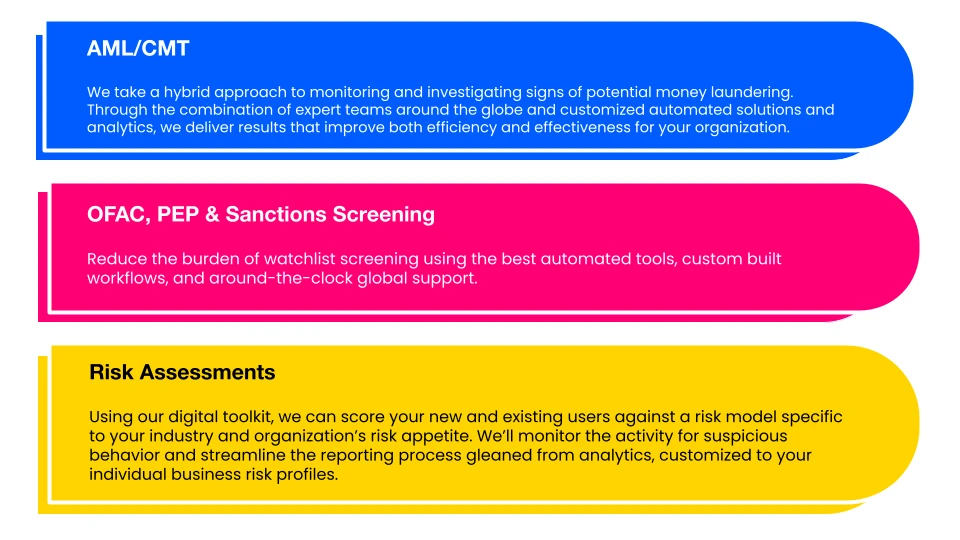Cette entreprise n'a pas de postes à pourvoir
0 Avis
Noter cette Entreprise (Pas d'avis pour l'instant)
About Us
Understanding Legal and Compliance Aspects in Your Outsourcing Journey
This short article is a submission by Managed Services Partners. Managed Services Partners is an outsourcing company with over six years of experience helping services improve operations and drive growth.

Embarking on the contracting out journey is an endeavor that many businesses carry out to enhance effectiveness, lower costs, and utilize specialized talent.
However, together with these possible advantages come a host of legal and compliance complexities that should be carefully navigated to guarantee the success and sustainability of outsourcing efforts.
This thorough guide will check out crucial legal and compliance considerations, with a focus on data privacy laws, non-disclosure arrangements (NDAs), non-compete stipulations, and the vital role of versatility in today’s vibrant business environment.
The outsourcing landscape
Outsourcing is more than a method for unloading non-core tasks; it is a transformative method that can enhance a business’s versatility and competitiveness.
Whether it’s IT services, customer assistance, producing procedures, or personnels, contracting out can provide a substantial edge. Companies that successfully contract out can focus on core service operations, drive innovation, and gain access to top talent without the overhead expenses of full-time employment.
However, this journey is not without its legal and compliance difficulties. Companies must bear in mind the complexities surrounding the transfer and management of data, the security of copyright (IP), and the maintenance of regulative compliance.

Given the worldwide nature of outsourcing, companies should likewise consider cross-border legal ramifications, which might differ considerably depending upon the country where the outsourcing company operates.
Understanding these is necessary in guaranteeing that outsourcing partnerships align with a business’s strategic goals while alleviating potential legal risks.
In most cases, businesses that neglect legal and compliance considerations face pricey disputes, loss of sensitive information, or reputational damage that can take years to recover from.
Importance of legal factors to consider
Outsourcing naturally includes legal factors to consider that are vital to securing a company’s interests. At the forefront is the requirement to secure sensitive info. Companies need to comprehend and abide by data personal privacy laws that govern the jurisdictions in which they operate.

This is specifically crucial as information breaches can result in serious punitive damages and reputational damage.
Furthermore, intellectual property rights should be plainly defined in contracting out agreements to avoid unauthorized usage or misappropriation of proprietary properties. If these rights are not properly developed, a service might lose control over critical developments or personal business processes.
For companies running in highly regulated industries such as health care, financing, or legal services, compliance requirements are a lot more stringent.
Complying with policies such as the General Data Protection Regulation (GDPR) in Europe or the Health Insurance Portability and Accountability Act (HIPAA) in the United States is vital to preventing legal problems.
Non-Disclosure Agreements (NDAs) and non-compete provisions
When outsourcing, business often share proprietary info with external provider.
To secure this valuable information, NDAs are used. These agreements are designed to avoid the unapproved dissemination of confidential details, consequently safeguarding the business’s competitive benefit.
NDAs need to be detailed and lawfully binding, clearly outlining what makes up private info and the obligations of both parties in handling delicate information. Businesses must likewise guarantee that their NDAs consist of arrangements for legal option in case of breaches.
Similarly, non-compete provisions can be included to prevent company from making use of sensitive understanding acquired during the contracting out partnership to benefit a competitor. This is specifically essential when outsourcing freelancers or firms that might have numerous customers in the exact same industry.
However, the enforceability of non-compete provisions can vary significantly depending on the jurisdiction. Some areas have stringent regulations restricting the scope and period of such stipulations.

Therefore, it’s essential for business to seek advice from legal professionals with experience in the relevant legal structures to prepare efficient arrangements.
Contracts: Setting the foundation
Contracts work as the plan for the outsourcing partnership, specifying functions, responsibilities, deliverables, and timelines. They also describe the legal and compliance expectations for both parties.
A well-structured contract must resolve numerous crucial elements:

Scope of work: Clear and in-depth descriptions of the services to be offered, including quality requirements and efficiency metrics.
Data security: Specific clauses associated with data protection, information transfer treatments, and breach notification procedures to guarantee adherence to personal privacy laws.
Copyright rights: Provisions that establish ownership of IP created throughout the partnership, and terms that safeguard pre-existing IP.
Termination stipulations: Terms that resolve the possible end of the outsourcing relationship, consisting of notification durations and conditions under which termination can happen without penalty.
Additionally, companies should think about executing service-level contracts (SLAs) to make sure responsibility and performance tracking. SLAs specify quantifiable criteria that the outsourcing provider need to fulfill, offering businesses with option if expectations are not satisfied.
Engaging with company
Consulting with potential provider throughout the early stages of the contracting out journey is a tactical relocation. This engagement permits companies to gauge the supplier’s capability to fulfill legal and compliance requirements.
Thorough vetting processes, such as asking for referrals, evaluating past jobs, and evaluating compliance certifications, can supply important insights into the supplier’s dependability and adherence to market requirements.
Businesses need to also examine the monetary stability of possible contracting out partners.
A company that deals with financial challenges might not have the ability to preserve operations long-lasting, positioning a risk to ongoing tasks. Conducting due diligence beforehand can prevent future disturbances.
The function of flexibility in legal and compliance strategies
Adaptability is a vital part of effective outsourcing, especially when it concerns browsing evolving legal landscapes. Regulations and market conditions can change rapidly, making it essential for companies to stay agile.
Building versatility into contracts and developing procedures for ongoing compliance monitoring can help organizations adjust to brand-new legal requirements and keep an one-upmanship.
For circumstances, if a business is outsourcing consumer support operations to numerous nations, they need to ensure compliance with numerous national laws regarding customer defense and data privacy.
Regularly upgrading policies and agreements in reaction to legislative changes can avoid legal risks.
Real-world factors to consider and finest practices

To guarantee legal and compliance success in outsourcing, companies need to embrace the following best practices:
Regular audits and assessments
Conduct regular audits and assessments to guarantee that provider stay compliant with legal and regulatory requirements. This proactive technique can help identify prospective spaces before they escalate into substantial issues.
Training and awareness
![]()
Educate staff members and outsourced groups on data security practices and legal commitments. This guarantees that everyone associated with the contracting out journey comprehends the significance of compliance and the function they play in safeguarding info.
Collaboration and communication
Foster a collaborative relationship with provider. Open lines of interaction can assist deal with compliance concerns without delay and help with joint analytical efforts.
Crisis management preparation
Have contingency strategies in place in case of security breaches, contract disagreements, or provider failures. A well-structured crisis management strategy makes sure that services can rapidly respond to challenges without significant disruptions.
Legal compliance for outsourcing success
Understanding the legal and compliance elements of outsourcing is necessary for companies wanting to take advantage of external capabilities while securing their interests. By concentrating on key locations such as data privacy, NDAs, non-compete stipulations, intellectual residential or commercial property rights, and versatility, business can efficiently browse the outsourcing landscape.
Successful outsourcing hinges on a collective technique between the company and its provider. Building trust and keeping transparent interaction can cause reliable problem-solving and a shared commitment to compliance.


